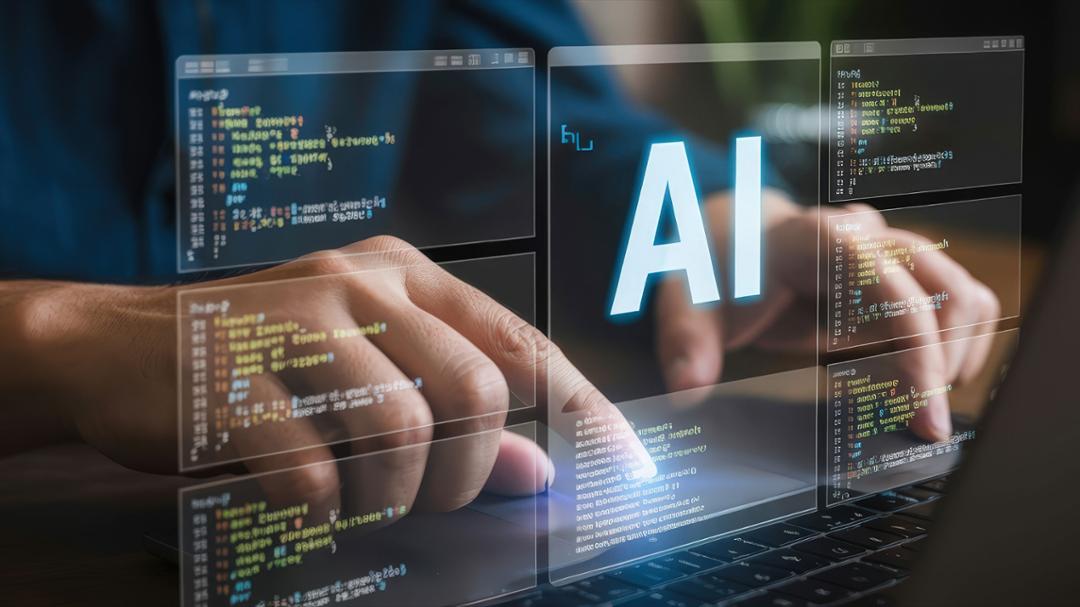Texas Tech Online is now offering a fully remote degree that gives students a competitive edge in the marketplace.
Artificial Intelligence (AI) is reshaping industries around the world. However, Texas Tech University’s new Bachelor of Science in Human-Centered Artificial Intelligence (HCAI) is focused on keeping people at the forefront of this digital transformation.
AI is used by vocal assistants like Siri and Alexa to understand commands. Streaming services such as Netflix and Spotify use AI to suggest recommendations to their consumers.
The Texas Tech faculty behind the newly launched program highlights that AI is more than a technical tool; it’s an instrument that is already influencing people’s daily lives.
“Texas Tech is always looking at ways to be innovative,” said Ashlee Brown, assistant vice provost for student services. “Looking at future growth, it really made a lot of sense to start looking at how artificial intelligence is understood by the user. Not necessarily producing, but really, how does it affect us as human beings?”
The online program is designed to assist students in developing AI technology that accommodates everyday life, enhances mundane tasks and balances innovation with responsibility.
HCAI has been in development for two years, inspired by the rise of generative AI tools similar to ChatGPT. Texas Tech faculty researched similar programs, identified gaps and searched how to deliver a unique offering. The result was a collaborative effort among numerous departments to provide a program emphasizing technical skill and human application.
Brown highlighted a shift in viewpoint: AI is more than just writing code. It also involves understanding how these systems interact with individuals, the effect it has on daily routines and how it influences decision-making.
For instance, many companies are now using AI to determine which job applicants are shortlisted. According to the World Economic Forum, roughly 88% of companies have implemented AI for preliminary candidate screenings. Bias may influence traditional hiring procedures. However, AI programs are being applied to assess candidates’ technical and soft skills, enabling employers to make impartial decisions.
Texas Tech Online offers a fully remote program structured in multiple 8-week courses, for a total of 120 credit hours. This allows it to be accessible to a diverse range of students. While some students are pursuing HCAI as a secondary degree, several are working professionals eager to broaden their knowledge.
“One of the reasons it was important for us to have it available online was for that very reason – allowing a more diverse age of students,” Brown said. “We’ve got students who have graduated from Texas Tech 10 years ago, 15 years ago.”
Texas Tech has also taken steps to ensure the program will suit students in various career paths by offering flexibility in electives and degree planning. Additionally, faculty emphasize that this program was created with future development in mind.
The initiative?
Putting Red Raiders in a position to meet workforce needs and demands across industries, as AI-related jobs are projected to rise 17% in the near future.
The foundational course required for the degree is Programming Logic in Human-Centered AI (HCAI 3301), which introduces students to the fundamentals of Python programming. Unlike traditional coding courses, this class emphasizes projects involving everyday scenarios, showing students how code can solve real-world situations.
Over the span of eight weeks, students should be able to develop applications that illustrate how coding can reduce daily irregularities and improve workflow, such as weekly payroll systems. This may also include developing applications for monitoring inventory, analyzing consumer behaviors, or constructing a scheduling program. As students advance, the hope is they will gain confidence, steer away from initial hesitancy and experience enthusiasm in what they create.
Taught by Kulsawasd “Bo” Jitkajornwanich, who has a doctorate in computer science and has been teaching AI since 2014, this course is reflective of his belief that anyone can code. Rather than concentrating on coding languages or tools, the program emphasizes making AI approachable, with Python serving as an accessible entry point for students.
But HCAI 3301 is merely the beginning. Subsequently, students will enroll in classes that incorporate computer science, psychology, ethics and communication that will teach them how they can develop AI tools and evaluate how it will affect society. The curriculum challenges students to reflect on topics of responsibility and privacy. The program integrates these viewpoints to demonstrate how AI can be applied to optimize efficiency and connectivity in life without losing sight of the individuals it is intended to benefit.
Texas Tech’s HCAI program is paving the way for students to take on leadership with both technical knowledge and understanding as the world of AI develops further. The university is preparing students to not only enter the workforce but to influence how society utilizes AI in the many years to come.
“The more efficient we are, the more time we have freed up,” said Brown. “We’re not just living, but we are living well and we’re living better.”

